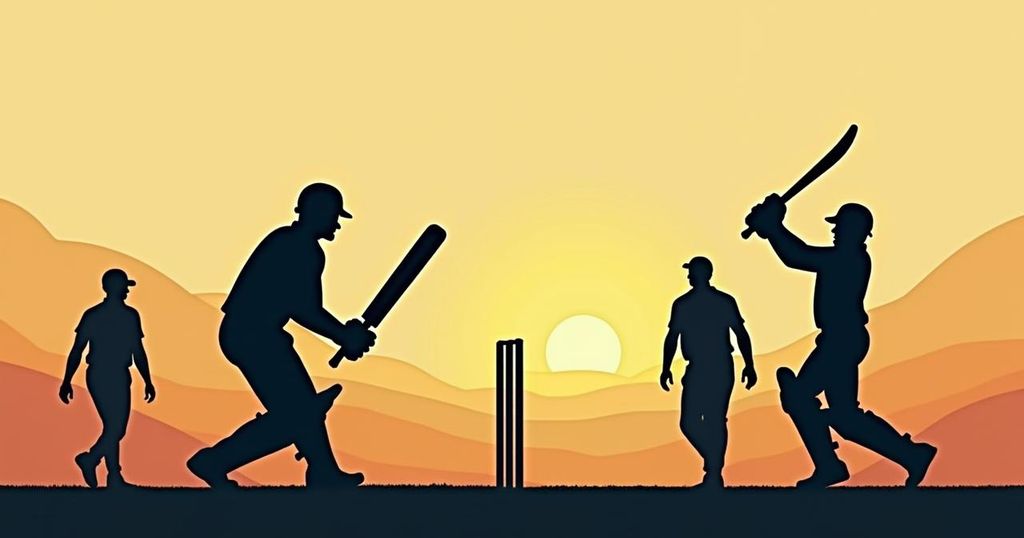India vs Bangladesh: A Review of the Five Shortest Test Matches in Cricket History
This article provides an overview of the five shortest Test matches in cricket history, detailing the circumstances and outcomes of each. The recent India vs. Bangladesh match, lasting 173.2 overs, reflects the trend of brevity in certain matches, influenced by factors such as weather and team performance. Other notable short matches include India vs. South Africa in 2023 and Australia vs. South Africa in 1935, among others.
Cricket boasts a rich and storied tradition, featuring numerous enthralling encounters over the decades. However, some matches stand out not for their thrilling moments, but for their remarkable brevity. A recent Test match between India and Bangladesh exemplifies this phenomenon, concluding after only 173.2 overs due to significant rain interruptions. In this discourse, I shall delineate the five shortest Test matches recorded in cricket history, highlighting the unique circumstances surrounding each contest. 1. India vs. South Africa, 2023 – 107 Overs: Recently, the shortest Test match on record occurred in Cape Town in 2023 between India and South Africa, lasting merely 107 overs. India emerged victorious by seven wickets, culminating in a series draw of 1-1. The match witnessed a dramatic fall of 23 wickets on the first day, with bowlers like Mohammed Siraj and Jasprit Bumrah showcasing extraordinary performances to assist India in chasing down just 79 runs the following day. 2. Australia vs. South Africa, 1935 – 109.2 Overs: The second-shortest Test took place in 1935 at the Melbourne Cricket Ground, where Australia defeated South Africa in only 109.2 overs. South Africa faced a dismal performance, being all out for just 36 runs, leading Australia to a resounding victory by an innings and 72 runs. 3. West Indies vs. England, 1935 – 112 Overs: Another notable match occurred in January 1935 in Bridgetown, where the contest lasted a mere 112 overs, severely affected by inclement weather. The West Indies managed only 102 runs, while England declared at 81 for 7 and successfully chased a modest target of 75 runs, clinching victory. 4. India vs. Bangladesh, 2024 – 173.2 Overs: In a recent encounter, the Test match between India and Bangladesh comprised 173.2 overs. Rain disruptions led to minimal play on the first three days. India bowled Bangladesh out for 233 on day four and then declared at 289 for 5 in just 34.4 overs, subsequently dismissing Bangladesh for 146 runs again on day five. India efficiently chased down the target of 95 runs, securing a 2-0 series win. 5. England vs. Australia, 1888 – 196 Overs: This Test match was part of the celebrated 1888 Ashes series, taking place at Old Trafford and lasting 196 overs. England amassed 172 runs, while Australia managed only 151 runs throughout their two innings, resulting in England’s victory by an innings and 21 runs. These brief yet remarkable matches demonstrate the unpredictable nature of cricket, where factors such as weather and personal performances significantly influence the outcome. Such encounters present a distinctive chapter in the narrative of cricket’s vast history.
The length of Test matches has varied greatly over the years, influenced by factors such as weather conditions and gameplay failures. While some tests have extended across five days, others have concluded within a short span, leading to a collection of remarkably brief contests, which often leave a lasting impression due to their unusual brevity. Understanding these matches provides insight into the unpredictable nature of cricket, showcasing how various elements can dramatically alter the dynamics of the sport.
In conclusion, cricket’s history includes a selection of unusually short Test matches, with instances of play coming to a swift end due to various circumstances, primarily weather conditions and batting collapses. The matches highlighted here, particularly the recent encounter between India and Bangladesh, underscore the unpredictable and often staggeringly variable lengths of Test cricket, revealing that even the most concise battles can leave a significant mark on the cricketing landscape.
Original Source: www.sportingnews.com




Post Comment